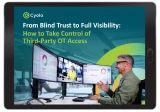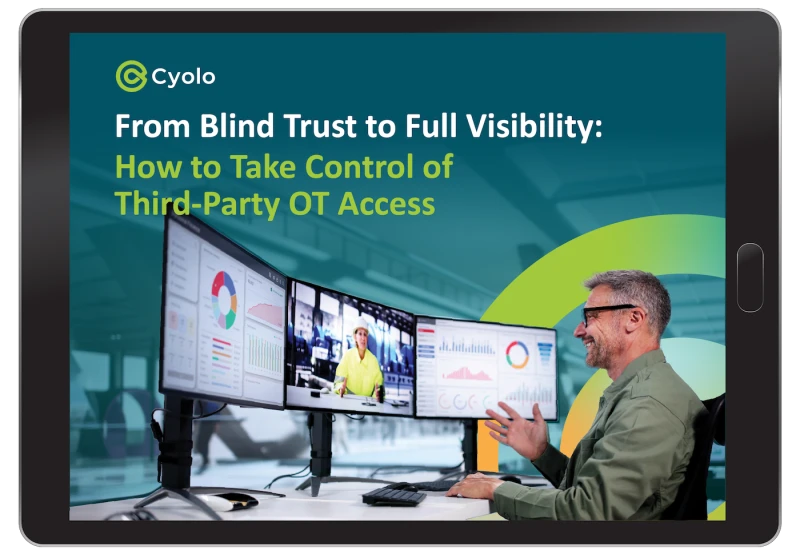
Gain visibility and control while giving vendors the access they need — and nothing more.
Third-party vendors, suppliers, and contractors are crucial for your business. But most secure remote access solutions aren’t designed to support smooth collaboration.
So they don’t give you what you need most: a way to get your vendors connected easily, to monitor their activity, and to manage what they can do inside your OT environment.
Cyolo puts you in control without slowing your vendors down and gives them a frictionless, agent-free experience that makes it easier to do their best work.

FROM BLIND TRUST TO FULL VISIBILITY
Read our new white paper to learn how adding access controls actually increases vendor productivity.
With Cyolo, “it’s the first time we’ve had third parties ask if they could use [a security tool] for more. Usually, it’s grumbling. But now the reaction is: ‘Oh, this is quite good.’”
Senior technical lead at a global food & beverage manufacturer
Keep your OT environment secure with an access solution your vendors and admins will both love
Upgrade to identity-based access
Reduce your attack surface by verifying every user and device according to identity-based parameters, not location or IP address.
Grant access to the assets they need – and nothing more
Enforce least privilege access to ensure third parties can only connect to authorized assets and never to the full network.
Decide when, where, and how vendors access assets
They’re inside, but you’re still in control. Set time limits, enable just-in-time (JIT) access, and restrict risky actions like copy-paste, file transfer, and more.
Log in via web browser or native clients
Agentless access gets your vendors online faster and eases the burden on admins.
Real-time monitoring and supervised access
Gain visibility into what vendors are doing while connected to your critical systems. Even terminate sessions in real-time if suspicious activity is detected.
Connect fast from anywhere
Cyolo PRO’s decentralized architecture minimizes latency and maximizes connection speed — so vendors and technicians can respond and resolve issues faster.
Get the full benefit of your vendors’ expertise. Without agents. Without delays. And without added risk.

Security Leaders
Gain visibility and control
Unmonitored third-party access can put your whole organization at risk.
Take control of third-party connections and let your vendors be an asset to your business, not a threat to your security.
OT Leaders
Make access easier for everyone
Make it simpler than ever to work with your favorite third-party vendors.
They’ll work faster. You’ll spend less time managing and troubleshooting their access. Productivity will soar across the board.


Case Study
How Tata Chemicals Prevents Data Breaches by Securing Third-Party Access with Cyolo
"Cyolo allows us to limit access to both internal and third-party users through the policies and connections within the platform itself. So we're able to very easily restrict users or groups of users to the specific systems, ports, and protocols that they need to access without having to set up a bunch of complex firewall rules or routes or application filters."
Gibson Mark, Senior Systems Administrator, Tata Chemicals






